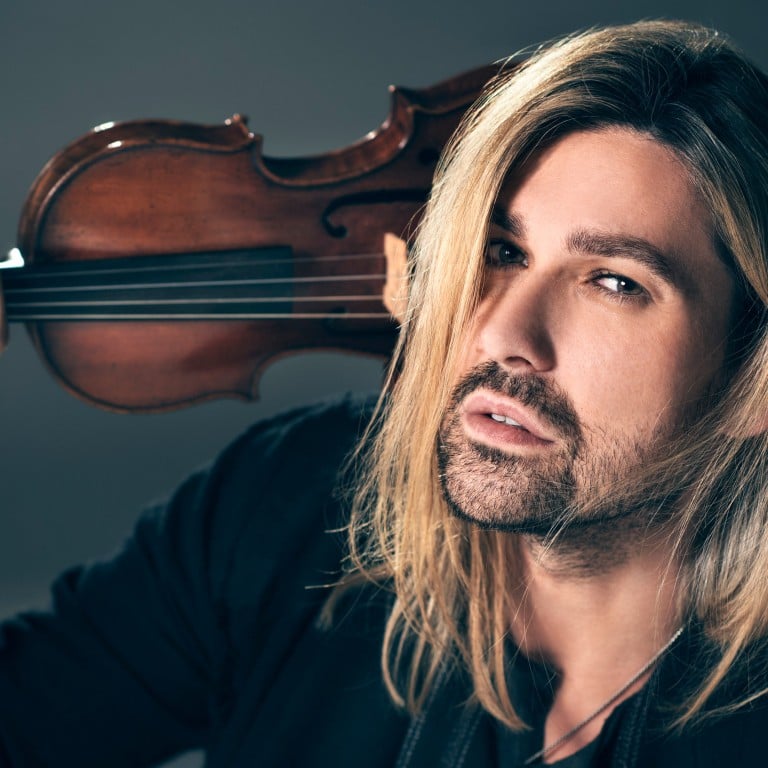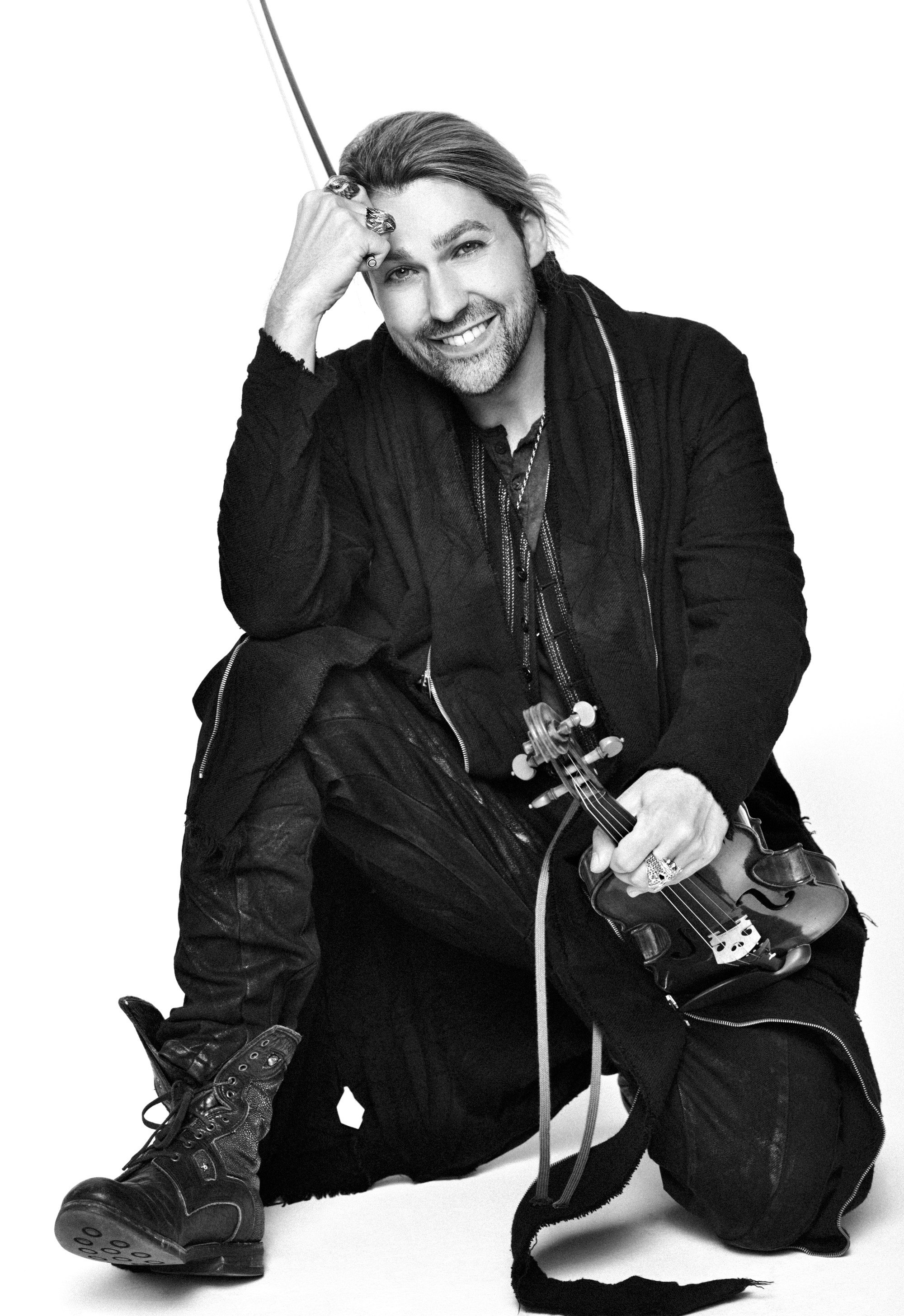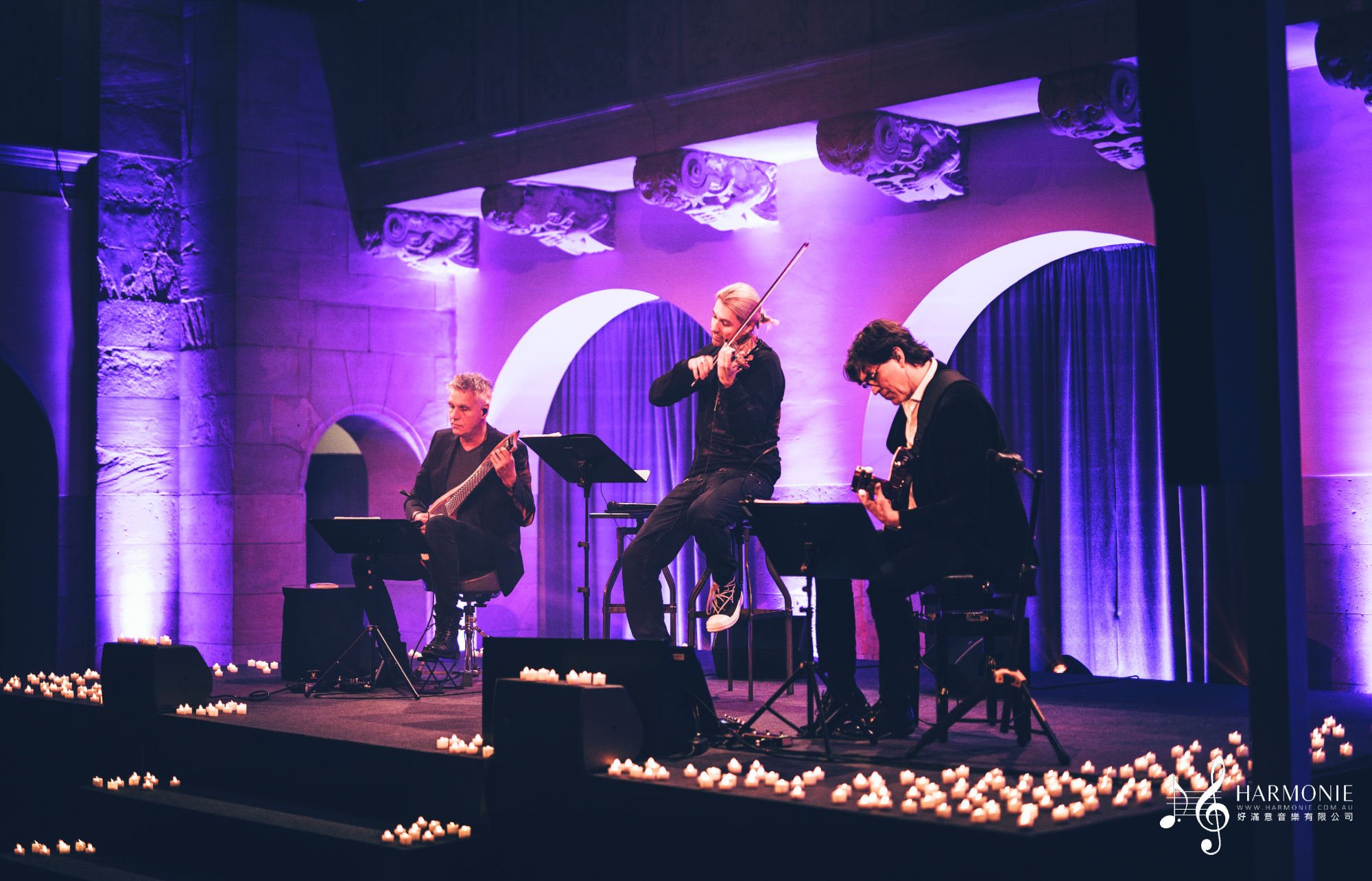
Rock-star violinist David Garrett on his 2007 debut in Hong Kong, being back, his latest album and why he has a problem with the word crossover
- David Garrett, violin virtuoso, who made his debut in Hong Kong more than 15 years ago, returns to the city as a multiplatinum superstar
- He talks about being happy to be back, his latest album, Iconic, and why he plays well-known songs instead of classical concertos
For celebrity violinist David Garrett, performing in Hong Kong is always special, because it was the city that set him on the path to becoming a global phenomenon with a rock-star following.
Until today, he says, the memories of that first visit more than 15 years ago remain “engraved in my head”.
Back in 2007, Garrett had just recorded his first crossover album, Virtuoso. Although he already had an established career as a classical violinist, his then-record label wasn’t sure about his new, pop-inspired material.
To test demand, they sent him to play in smaller markets outside Europe and the United States.
“Basically, it was a try-out. Hong Kong was the first place they sent me,” recalls Garrett, now 42.

“[Hong Kong] was the first place where the album really took off, before Germany, before any other country,” he says.
“I have to be very thankful to the Hong Kong audiences, because they actually did make my career possible.”
Now a multiplatinum-certified musician who has performed for the likes of then-US president Barack Obama and Britain’s late Queen Elizabeth, Garrett will be returning to Hong Kong on September 13 on a concert tour to promote his latest album, Iconic.
Happy birthday Jungkook: BTS singer turns 26, and fans are celebrating
The album marks a return to Garrett’s classical roots, with a selection of short pieces rearranged to show off his virtuosic skills.
“[They are] like diamonds from classical music, because they’re small but they’re beautiful,” he says of the tracks on Iconic. Most of the pieces are less than three minutes long.
They include new arrangements of “The Swan” and “Danse Macabre” by Saint-Saëns, “Ave Maria” by Schubert, pieces by Vivaldi and Mozart, as well as duets – with the legendary violinist Itzhak Perlman, Garrett’s former teacher at the Juilliard School, tenor Andrea Bocelli, and the Japanese flautist Cocomi.
Throw in golden oldies like “Danny Boy” and it is the kind of “Best Tunes” selection that has helped him sell millions of concert tickets over the years.
Garrett certainly played in more “serious” settings back when he was a classical soloist. However, he realised that would only ever get him a small and elite audience.
Most people today don’t have the attention span to sit through an entire violin concerto, he says. “[I]f you really want to grab the attention of new audiences, you have to make it possible for them,” he says. And that means shorter pieces.

This balance, and to some extent, tension, between accessibility and technical skill is something Garrett has grappled with since that first Hong Kong appearance.
He had a fairly traditional start as a musician. Born in Germany to a ballerina mother and a lawyer father, he began playing the violin aged four, embarking on a gruelling training regime and studying with teachers all over Europe.
He was a child prodigy, making his stage debut when he was 10 and signing with Deutsche Grammophon as the label’s youngest ever soloist. Incredibly, he recorded his first DG album, playing Beethoven’s Spring Sonata, when he was just 13.
He eventually moved to New York to attend Juilliard, supporting himself with modelling work. That was when he began to cultivate his rocker-heartthrob image, as seen on the cover of his 2002 album Pure Classics.
And then came 2007 and that first “crossover” album, and the long-haired, ring-clad, stadium-filling megastar was born.
By playing everything from pop to music from film soundtracks and musicals to classical arrangements, he has followed the path of earlier classically trained musicians who found mass appeal by mixing up their repertoire – Nigel Kennedy, Vanessa Mae, and the female string quartet Bond, to name just a few.
But Garrett, who starred as the 19th century musician Niccolò Paganini in the film The Devil’s Violinist (2013), says he has a problem with the term “crossover” and how it categorises musicians like himself.
He concedes that crossover, as a genre, tends to get a bad reputation as a sort of classical music light for musicians who lack the technical mastery to pull off more complex pieces.
Mozart wasn’t called crossover when he wrote the ‘Turkish March’. Vivaldi wasn’t called crossover when he started making programmatic music, you know, or Paganini when he wrote ‘Moses Fantasy’
Crossover “was never a cheap shot, never, like, you know, a quick way to kind of get people interested”, he says.
Instead, he tries to approach such pieces with dignity and respect for the original artists, treating them with the same regard as his classical work.
“If I record a crossover record, I make sure that it’s on a very, very high level,” he says. “I try, at least artistically, to do both worlds to the best standard.”
“Mozart wasn’t called crossover when he wrote the ‘Turkish March’. Vivaldi wasn’t called crossover when he started making programmatic music, you know, or Paganini when he wrote ‘Moses Fantasy’,” he says.
These were all composers who adapted materials from other sources from their own time. “It wasn’t called crossover; it was called music.”
Asked what he thinks it takes to make an artist iconic, he hesitates – that’s for audiences to decide, he says.
“It’s little things, not necessarily the playing. Of course that’s the foundation, but it’s also the way you are as a person, the way you portray yourself.”
David Garrett plays the MacPherson Stadium, Mong Kok, Hong Kong on September 13.

